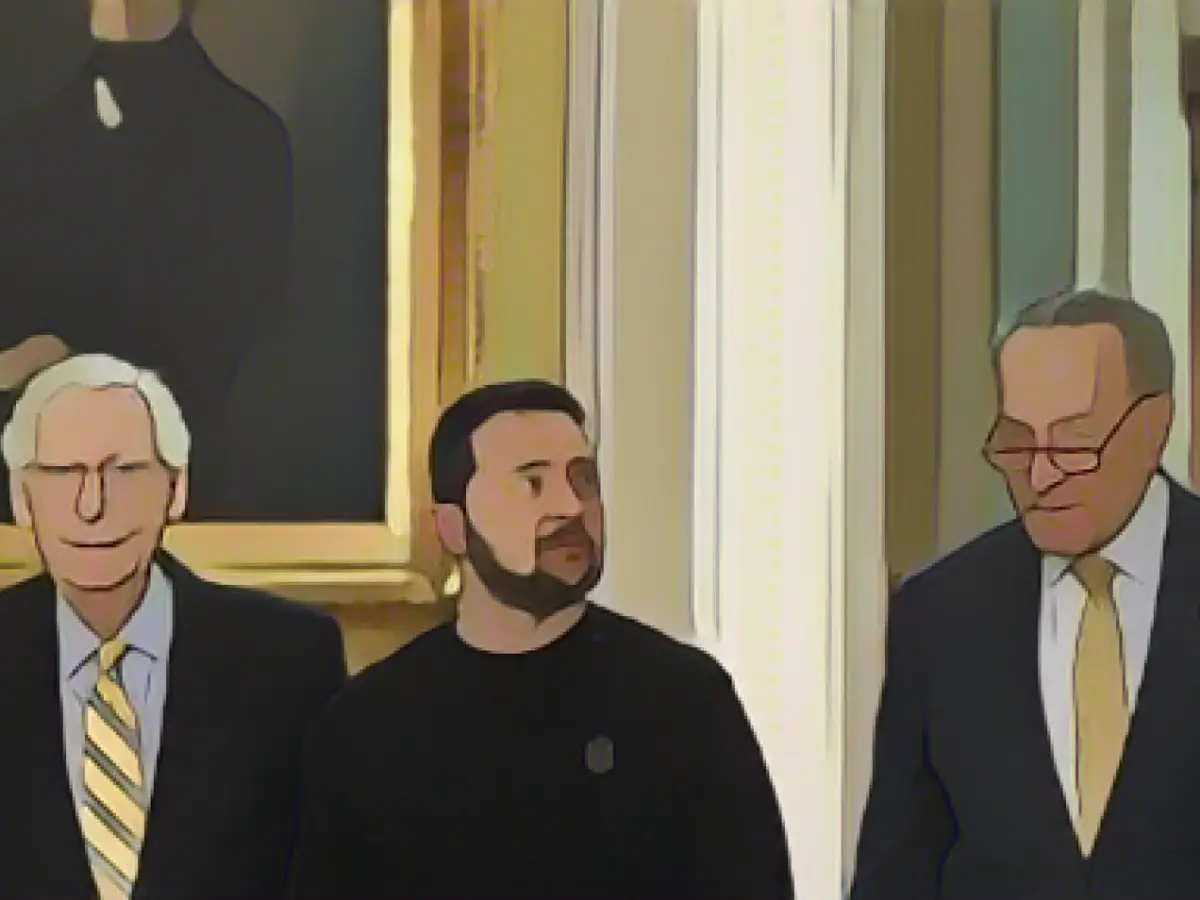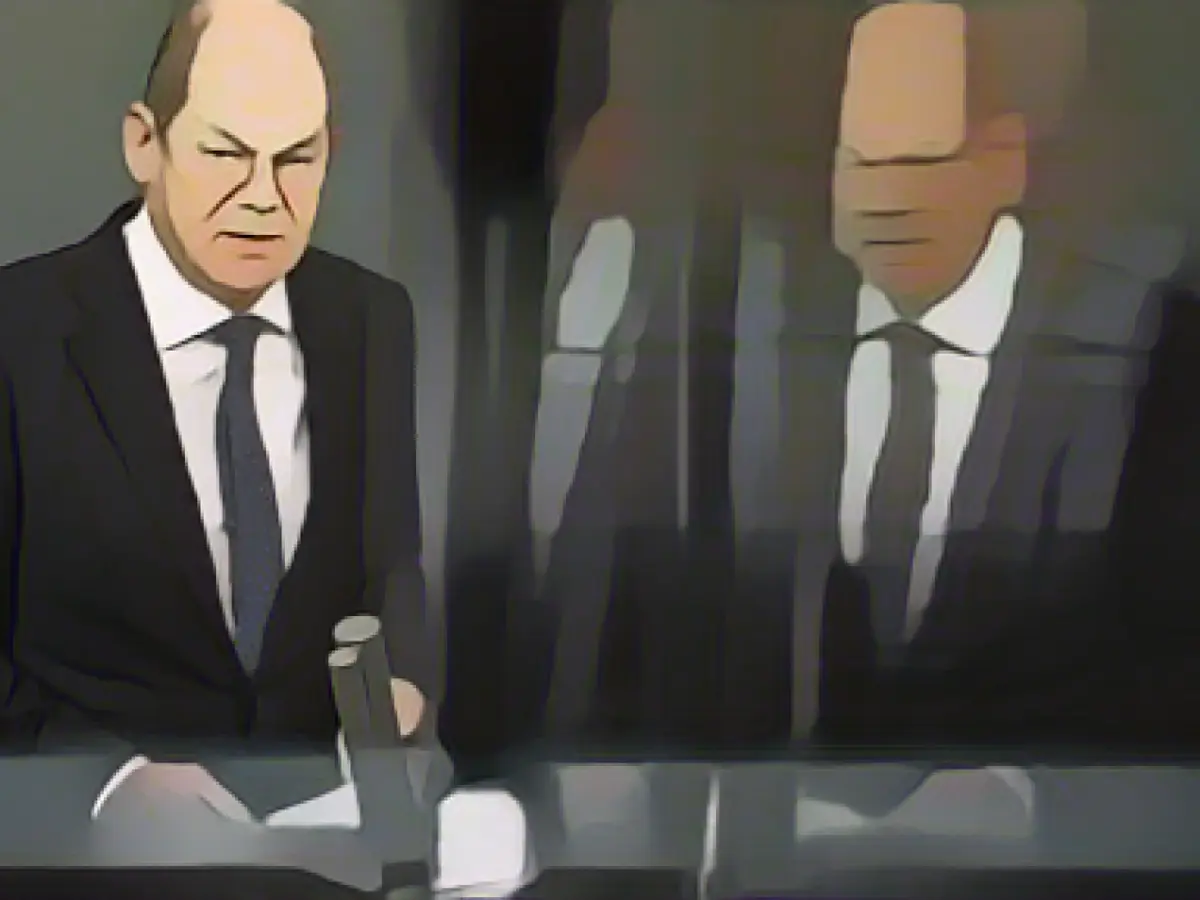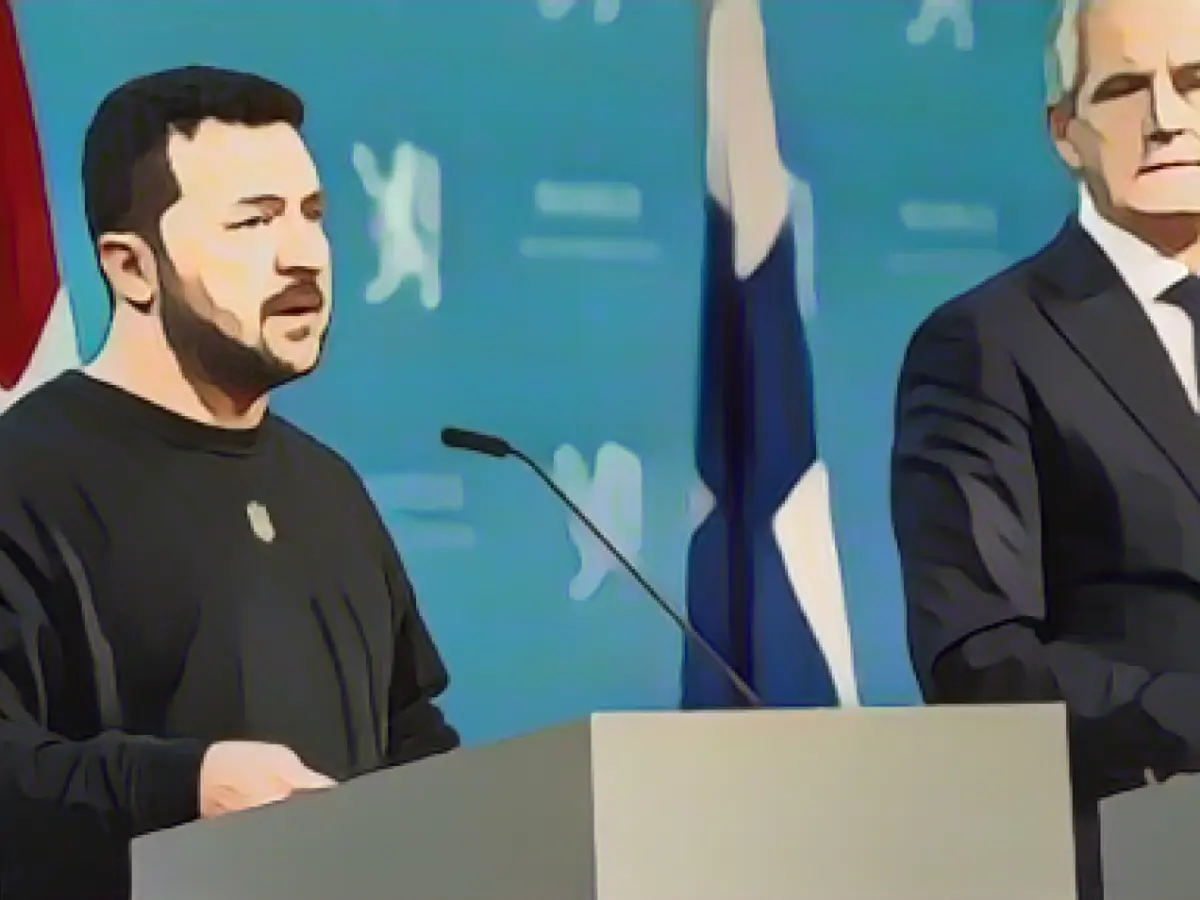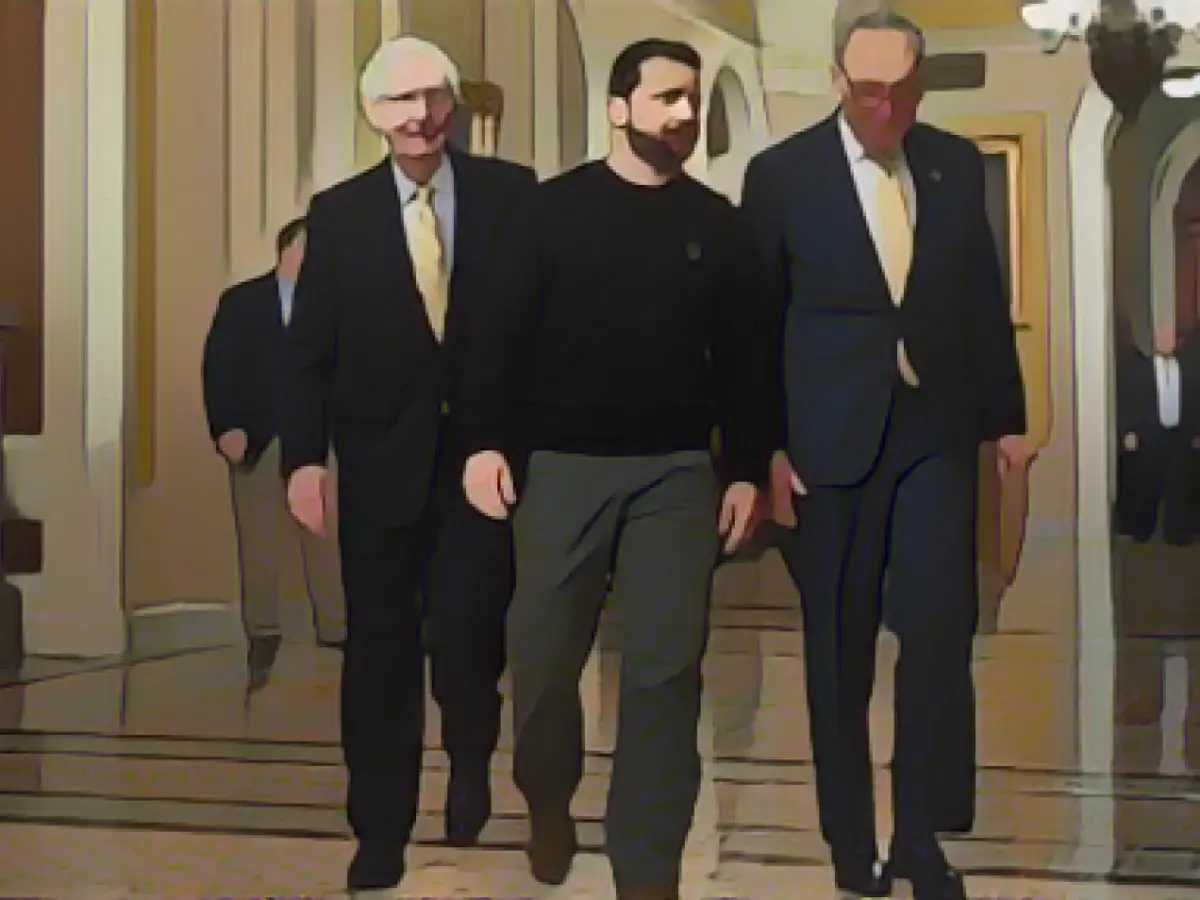Zelnenskyi Sought Boost in US Military Aid During Washington Visit
In his recent visit to Washington, Ukrainian President Volodymyr Zelenskyy aimed to secure more military aid from the United States. The visit, described as "crucial" by Senate Democratic Leader Chuck Schumer, came amidst tensions between Russia and Ukraine and ongoing negotiations on US foreign aid.
Zelenskyy's meeting with President Joe Biden was set for 10:15 p.m. CET, and the Ukrainian leader also planned to meet with Republican House of Representatives Chairman Mike Johnson. The purpose of these meetings was to advocate for continued and increased US support in Ukraine's fight against Russian invasion forces.
The US has been one of Ukraine's primary supporters in the ongoing conflict, providing more than $44 billion in military aid since Russia's invasion in February 2022. This aid is critical for Ukraine, as it is one of the country's most important allies in the war against the Russian forces.
However, the proposed aid package presented by President Biden last week, worth $106 billion (99 billion euros), which included $61.4 billion in assistance for Ukraine, faced criticism from the US Republicans. Among the representatives' concerns were demands for further concessions on US immigration policy and securing the border with Mexico.
Zelenskyy's warning against the delay in US aid was urgent, as he considered any delay to be a victory for Russian President Vladimir Putin. "Putin must lose," asserted Zelenskyy during a speech at the National Defense University in Washington. He emphasized that politics should not betray the Ukrainian soldiers or weaken the free world's resolve.
Putin, in turn, claimed that the US financial aid to Ukraine had not yielded the desired results, as the tens of billions of dollars spent had not led to success on the battlefield. He also insinuated that Ukraine was lacking a "future" due to its dependence on foreign aid and lack of domestic resources.
Despite these challenges, the US President warned the Republicans that Putin would not cease his attacks in the event of a Russian victory in Ukraine. He cautioned against delaying Ukraine aid, citing the potential for Putin to target a NATO country.
Meanwhile, Republican Senator J.D. Vance dismissed these warnings as "absurd," stating that there should be no "blank check" for Ukraine. Vance questioned the effectiveness of additional aid, as $61 billion might not achieve more than previous allocations.
Nevertheless, tensions between Russia and Ukraine escalated as the Russian army made significant progress in the Zaporizhia region, a partially Russian-occupied region in southern Ukraine. The resulting hacker attack on Kyivstar, Ukraine's largest mobile phone provider, further highlighted the conflict's virtual dimensions. The attack, described as an "act of war" by Kyivstar, affected more than 24 million users and temporarily disrupted service, prompting investigations by the Ukrainian secret service.
Related Articles
- During his talks with Biden, President Volodymyr Zelenskyy underscored the need for continued US military aid in Ukraine.
- The Democratic majority leader in the US Senate, Chuck Schumer, commended Zelenskyy's visit as a vital step in supporting Ukraine's defense against Russian aggression.
- Mike Johnson, the Republican Chairman of the House of Representatives, was also scheduled for meetings with Zelenskyy.
- Republican skepticism and demands for immigration policy concessions have delayed President Biden's proposed aid package for Ukraine.
- Vladimir Putin, Russia's president, has criticized US aid to Ukraine and warned of Russian victory's potential consequences.
- The ongoing conflict between Russia and Ukraine has resulted in hacker attacks on Ukraine's infrastructure, such as the Kyivstar mobile phone provider.
- The suspension of economic and humanitarian aid, while not impacting military aid, could have negative consequences in various sectors, including infrastructure reconstruction and agricultural support.








